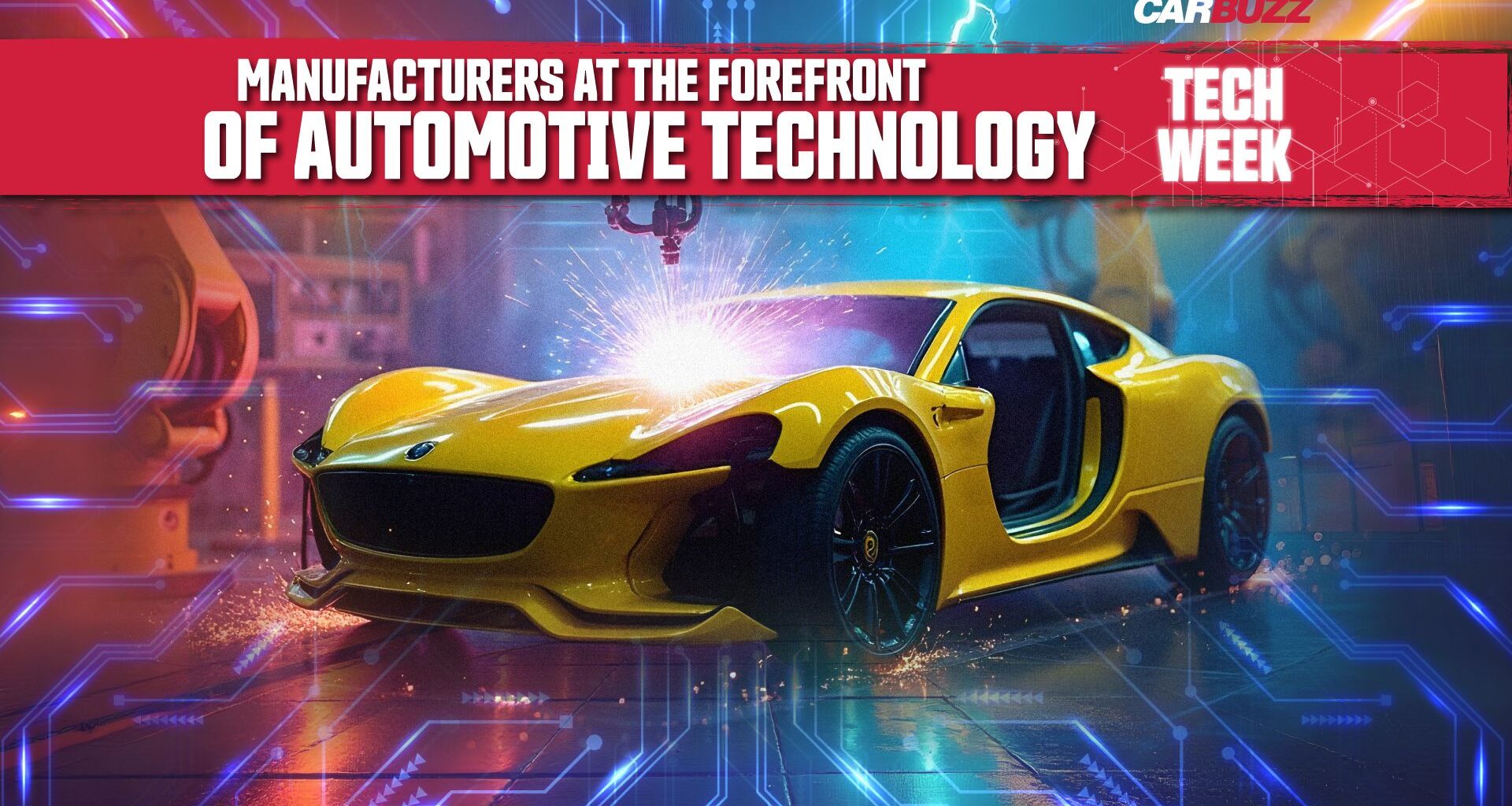It’s been more than 140 years since the first kind of ‘motor vehicle’ was driven on a public road – and that car had three wheels, no cabin, and a combustion engine that made just 0.75 horsepower. Now we’d argue that that invention is little more than a motorized tricycle, given how much technology has advanced in the century and a half since then. The advancement of technology is particularly obvious in the automotive world where we have cars that run on gas, electricity, or a combination of the two, can park themselves, and can be spoken to operate.
But even with technology constantly evolving, there are some automakers who are doing just a little more than others, moving the game forward for the industry as a whole. These are the automakers currently leading the charge in terms of industry-changing technology.
It’s Tech Week at CarBuzz, so we’re diving deep into the technologies that make the motoring industry tick, where they come from, where they’re heading, and what technology we can expect to see shaping the automotive industry in decades to come. Stay tuned for daily articles, interviews, and insights from the CarBuzz team on the technology shaping the future of the automotive world.
1
Porsche
Turbocharging And Synthetic Fuel
Porsche has always been at the forefront of automotive technology in some way or another, and arguably the most important contribution has been in terms of turbocharging. Most major developments in turbocharging technology has come from the German marque – it was Porsche who made turbocharging viable on the mass market to begin with. In the mid-’80s, Porsche equipped its 911-based race car, the 959, with a sequential twin-turbo flat-six engine, solving the problem of on/off power delivery. Decades on, Porsche is still at the forefront, using electric turbos like the hybrid-turbo setup in the 911 GTS (something Mercedes-Benz couldn’t quite manage). More than that, Porsche has also invested extensively in developing alternative fuel, working on a renewable fuel made from food waste products and harnessing wind power in the production process.
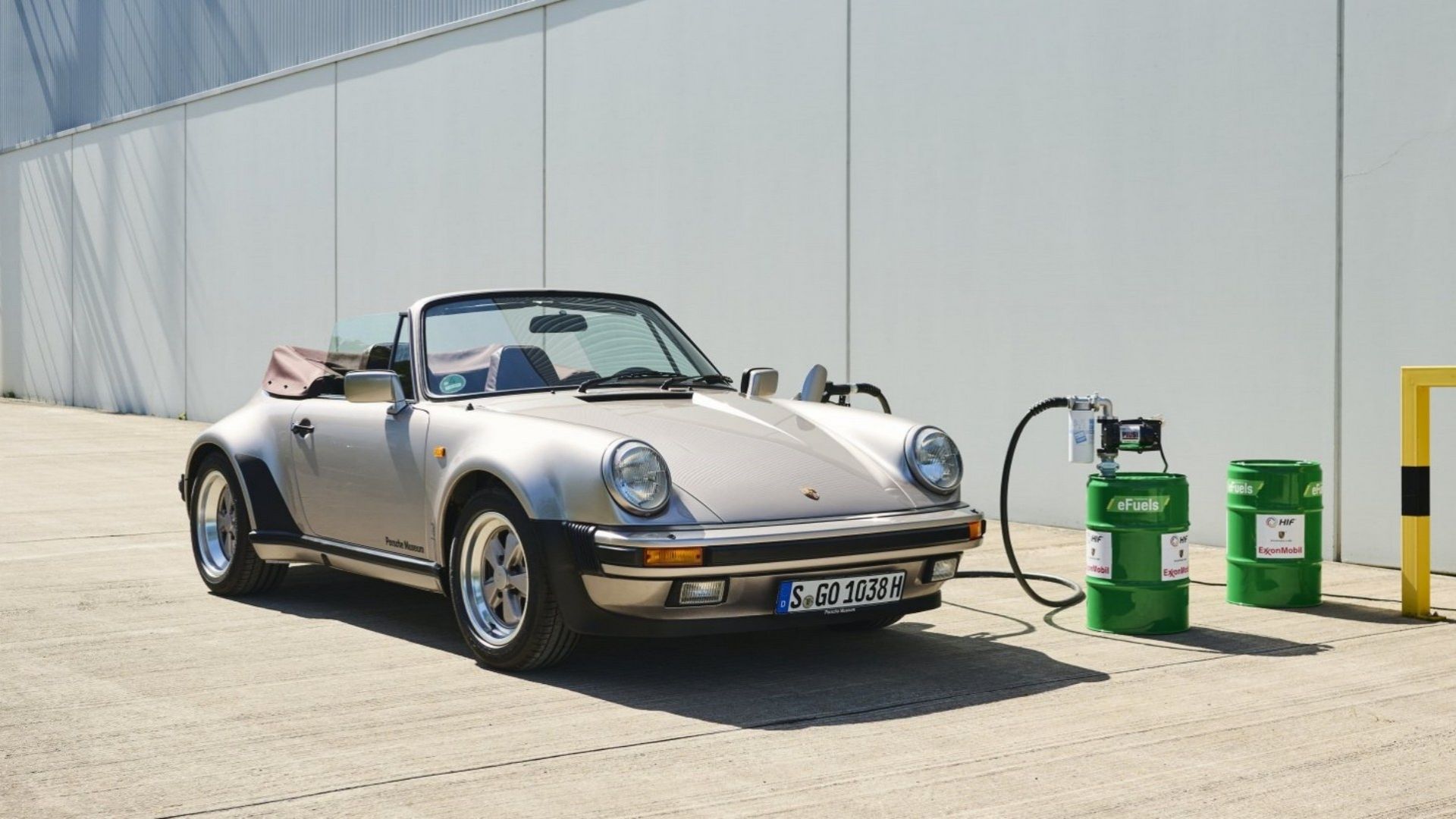
Related
EFuel-Sniffing Porsche Technology Might Save The Combustion Engine
Porsche could beat Europe’s combustion ban with an absolutely genius solution.
2
Lucid Motors
Efficient – And Potent – EV Tech
More than just being competition for the likes of EV giant Tesla, Lucid Motors has done a great deal in the field of EV tech – most notably in terms of efficiency in battery and motors. Lucid is currently the only manufacturer that can produce cars that get 5 miles per kilowatt-hour, and subsequently has earned the title of the automaker with the most efficient electric vehicle in the world. Efficiency isn’t the only area where the brand excels, however, extracting blistering performance from its EVs. The Lucid Air Sapphire, a 5,300-pound-plus sedan, has a 0-60 time that’s just a fraction of a second slower than the Pininfarina Battista hypercar’s 1.79-second time.
3
Toyota
Strategy For Carbon Neutrality
A mainstream brand among the rest, Toyota deserves mention for a host of reasons – not the least of which is its multi-pathway strategy to carbon neutrality. The brand’s strategy covers an array of propulsion tech, including flex-fuel hybrids, fuel cell systems, and electric vehicles. Toyota continues to offer ICE products, traditional and plug-in hybrids, and EVs in its lineup – with a continued rollout of new BEVs planned globally- but it has also made key developments in solid-state battery technology. Toyota has also invested in developing a manual transmission for electric vehicles.
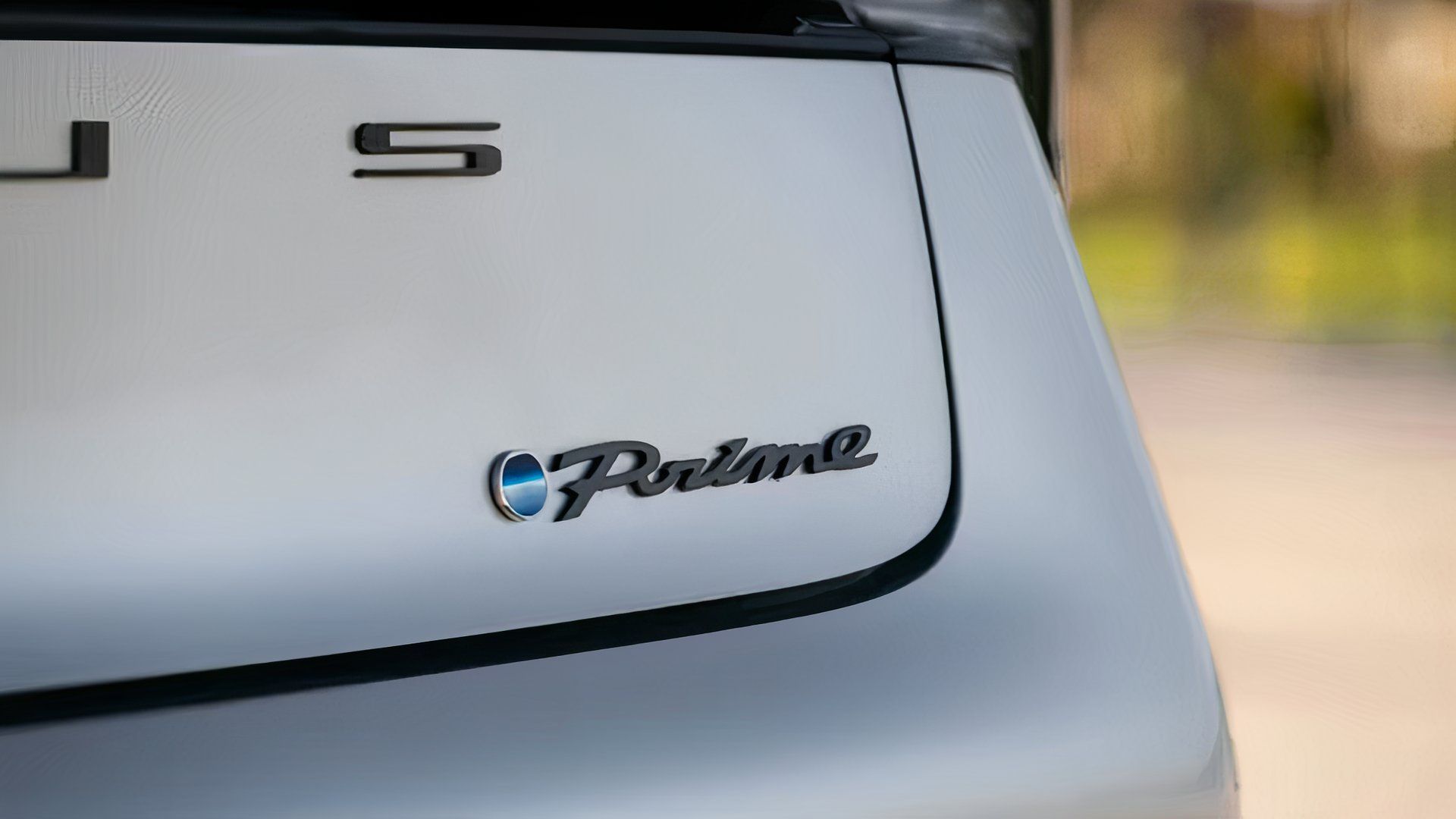
Related
Toyota’s Solid-State Battery Ambitions Are One Step Closer To Reality
Toyota has been playing the long game with EVs, and it could be about to pay off.
4
Koenigsegg
Multiple Tech Fronts
A name synonymous with high-end supercars, Koenigsegg is also known for pushing the boundaries of what we think is possible. Long before 3D printing became popular, Koenigsegg was experimenting with titanium 3D prints of exhaust tips on its One:1 hypercar, and investing in freevalve technology that promised to revolutionize combustion engines in the early 2000s. That tech – which allows an engine to control valve timing without camshafts – became a reality on what was supposed to be the world’s most powerful three-cylinder engine.
There’s also the single-speed “direct drive” transmission in the Koenigsegg Regera that was a world-first nearly a decade ago when it launched the hybrid hypercar. More recently, the brand also produced a manual-that’s-also-an-automatic transmission on the CC850 – a cutting-edge gearbox based on the Light-Speed Transmission used in the Jesko; the latter was already groundbreaking as a multi-clutch transmission with no flywheel.
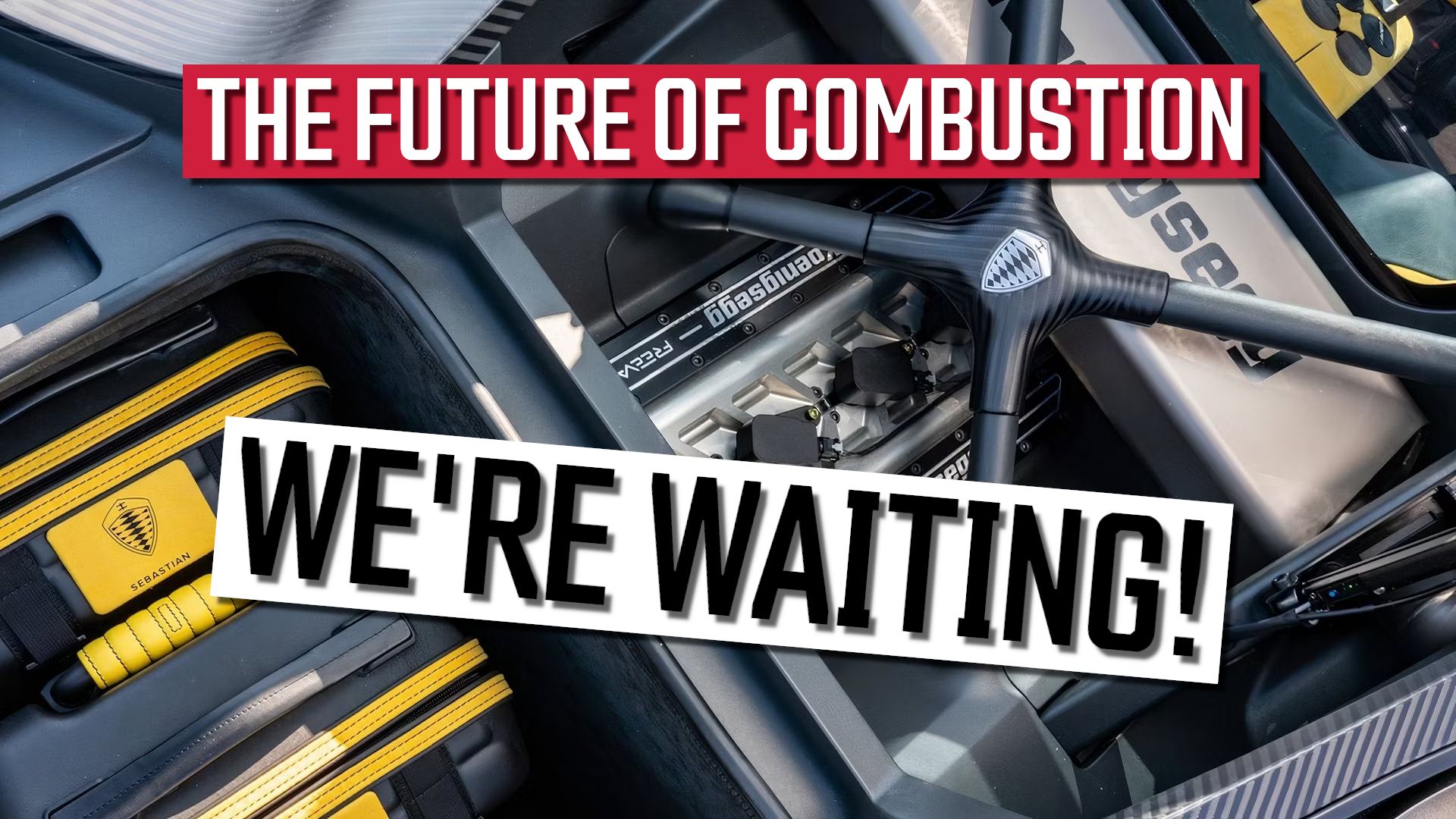
Related
14 Years Ago, Koenigsegg Promised Us Combustion’s Next Big Thing, This Is What Happened To It
It was meant to take the combustion engine to a new era of efficiency, but 14 years after Koenigsegg established Freevalve, we’re still waiting.
5
Czinger
3D Printing Technology
We’ve touched on 3D printing above, but the brand that’s truly at the forefront of 3D printing with AI development is Czinger, albeit more directly through partner company Divergent Technologies. Founded in 2014 by Kevin Czinger, the aim of the company is to accelerate the development time of automotive parts production. This technology is showcased on the Czinger 21C, a hypercar powered by the most power-dense engine in the world, which uses around 350 parts that have been 3D printed. The company has also become the supplier of choice for high-end super- and hypercars like the Bugatti Tourbillon and McLaren’s W1.
2:43
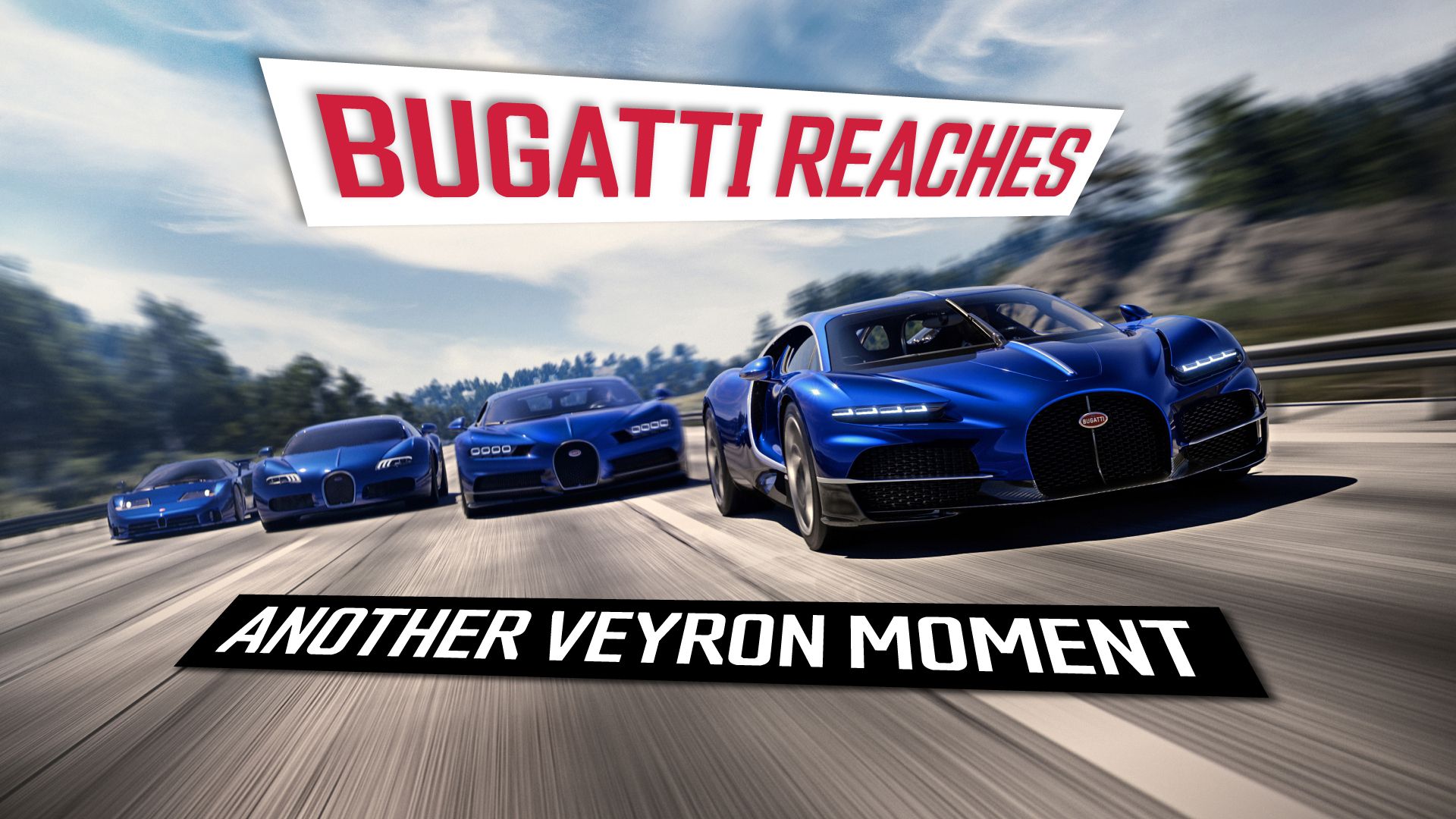
Related
9 Reasons Why The Bugatti Tourbillon Is Another Veyron Moment
The Bugatti Tourbillon is another massive step forward for internal combustion, and the automotive industry as a whole.
6
Rimac
Supply Chain and EV Tech
You may have seen this one coming, but Rimac’s contribution to the automotive world is not just through the production of record-breaking cars like the Rimac Nevera, but more so for pioneering hybrid technology such as that used in the Bugatti Tourbillon. The automaker is also a supply partner for Aston Martin, providing the Valkyrie‘s lightweight hybrid battery system, as it does for Koenigsegg with the Regera. Recently, BMW also announced it would partner with the Croatian brand for high-voltage battery technology in some of its EVs.
